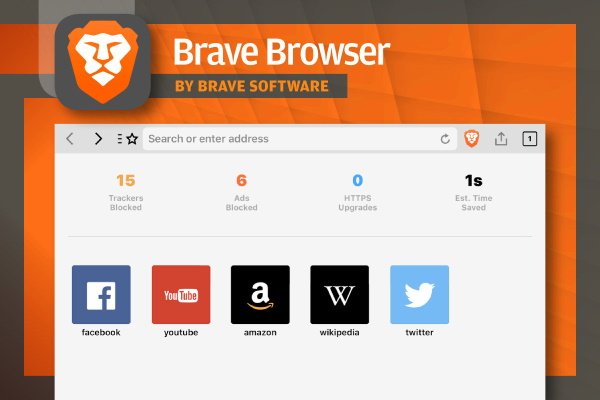It’s imperative to protect your business data (we’re all about that!), but don’t forget about your personal data.
When was the last time you took a look at your privacy settings on Google, Facebook, Amazon, or other well-known apps/websites?
Allow me to speculate — it’s been a while, if ever.
You may have seen in the causes that your email inbox is being overflowed with updated data policies from a ton of different software companies.
This is in response to changing privacy laws, including the new GDPR which is eventually influencing the manner in which personal data is dealt with all over.
I presume you haven’t read a single one of those policy updates, but I can’t say I blame you. They’re really long and intricate and most people are excessively occupied or overpowered to sort out what they ought to really do. And, that is actually what the tech giants have been relying on.
Contents
3 examples of what some of those default settings allow:
- Google Maps tracks everywhere you go on your iPhone or Android phone, and then keeps a log of this information in a “Timeline” that shows you everywhere you’ve been. It is creepy that Google can track your movements without you even realizing it.
- Amazon keeps recordings of all your conversations with Alexa.
- Facebook exposes your friends list and all the pages you follow to, well, everyone. A few months back, it emerged that the details of 533 million Facebook users, including phone numbers and email addresses, had been leaked online.
Privacy is now a priority among browser-makers, but they may not go as far as you want in fighting pervasive ad industry trackers on the web. For all of the browsers listed here, you can give yourself a privacy boost by changing the default search engine.
Other universal options that boost privacy include disabling your browser’s location tracking and search engine autocomplete features, turning off password auto-fills, and regularly deleting your browsing history. If you want to take your privacy to the next level, consider trying one of the virtual private networks. One of our Authors, Anyaelisha wrote an article about the Factors Individuals Should Consider Before Choosing a VPN Service — check the detail here.
In the meantime, though, here are some simple settings you can change in your browser to help keep a good portion of advertising trackers off your trail.
Google Chrome browser privacy settings to change
Google Chrome is a powerhouse of a browser that’s been with us since it launched way back in 2008, ushering in a new era of speedy, simple tab-based browsing. These days, it’s not quite as lean as it once was, but it’s risen to be the most popular browser out there.
Unfortunately, the world’s most popular browser is also generally thought to be one of the least private when used straight out of the box. On the plus side, however, Chrome’s flexible and open-source underpinnings have allowed independent developers to release a slew of privacy-focused extensions to shake off trackers.
Here are four extensions to look at as you get started: Cookie Autodelete, uBlock Origin, Privacy Badger, and HTTPS Everywhere.
In the Chrome Web Store, click Extensions on the left and type the name of the extension you’re looking for into the search bar. Once you find the correct extension in the search results, click Add to Chrome. A dialog will pop up explaining which permissions the extension will have for your browser. Click Add extension to bring the extension into your browser.
If you change your mind, you can manage or remove your extensions by opening Chrome and clicking the three-dot More menu on the right. Then select More Tools and then Extensions. From here, you’ll also be able to see more about the extension by clicking Details.
If you’re on Android, sorry: extensions don’t work. So you’ll have to switch browsers altogether to something like DuckDuckGo’s app.
Although its search results may not be as useful or deep as Google’s, DuckDuckGo is a longtime favorite among the privacy-minded for its refusal to track user searches.
In the same three-dot menu in Chrome, you can also block third-party cookies by selecting Settings, then scrolling down to the Privacy and Security section and clicking Cookies and Other site data. From here, select Block third-party cookies.
Edge browser privacy settings to change
Microsoft’s Edge browser includes some simplified privacy and tracker-blocking options on its Tracker prevention screen. Within Edge, select the three-dot menu icon in the top right corner and select Settings. From the menu that then appears on the left, select Privacy and Services.
You’ll be offered three settings to choose from Basic, Balanced, and Strict. By default, Edge uses the Balanced setting, which blocks trackers from sites you haven’t visited while still being lenient enough to save most sites from some of the loading problems that may come with tighter security. Likewise, Edge’s Strict setting may interfere with how some sites behave, but will block the greatest number of trackers. Even the Basic setting will still block trackers used for crypto-mining and fingerprinting.
Firefox browser privacy settings to change
Firefox’s default privacy settings are more protective than those of Chrome and Edge, and the browser has more privacy options under the hood, too.
From inside Firefox’s main menu — or from inside the three-lined menu on the right side of the toolbar — select Preferences. Once the Preferences window opens, click Privacy & Security. From here, you’ll be able to choose between three options: Standard, Strict, and Custom. Standard, the default Firefox setting, blocks trackers in private windows, third-party tracking cookies, and crypto-miners. The Strict setting may break a few websites, but it blocks everything blocked in Standard mode, plus fingerprints and trackers in all windows. Custom is worth exploring for those who want to fine-tune how trackers are being blocked.
To apply your new tracking settings after you’ve selected your level of privacy, click the Reload All Tabs button that appears.
Safari browser privacy settings to change
By default, Safari turns on its proprietary Intelligent Tracking Prevention tool to keep you a step ahead of privacy pests. Even so, the tool hasn’t always worked smoothly since its 2017 debut. Google researchers spotted how Intelligent Tracking Prevention itself could be used to track users, though Apple buttoned down the problem.
Safari 14, announced in June and arriving later in 2020 with the new macOS Big Sur, will be able to tell you which ad trackers are running on the website you’re visiting and give you a 30-day report of the known trackers it’s identified while you were browsing. It’ll also tell you which websites those trackers came from.
To check that blocking is on, open Safari and click Preferences, then Privacy. The box beside Prevent cross-site tracking should be checked. While you’re there, you can also manually delete your cookies. Click Manage Website Data to see which sites have left their trackers and cookies hanging out in your browser. Click Remove next to any of the individual trackers you’re ready to get rid of, or just nuke the whole list by clicking Remove All at the bottom of your screen.
Cookies can be helpful, not just invasive, but for stronger privacy, you can block them altogether — both first-party cookies from the website publisher and third-party cookies from others like advertisers. To do so, check the box beside Block all cookies.
If you’re still looking for another layer of privacy, you can also install helpful extensions from the App Store like AdBlock Plus or Ghostery Lite for Safari.
Brave browser privacy settings to change
When it comes to anti-tracking tools, Safari’s latest privacy updates are still short of most of those found in the Brave browser. By default, Brave blocks all ads, trackers, third-party cookies, and fingerprints while still achieving blazing speeds. Brave also offers a built-in Tor private browsing mode, a heavy-duty tracker-blocking option, and added a built-in VPN for iOS users.
Inside Brave’s main menu, select Preferences to reveal the Settings panel on the left. Select Shields to see a list of privacy options on the right side of the screen. By selecting the Advanced view, you’ll be able to choose which kinds of trackers to block. By scrolling down, you’ll also be able to block login buttons and embedded content from Facebook, Twitter, Google, and LinkedIn. For even more protection and privacy fine-tuning, explore Additional Settings on the left, and select Privacy and Security.















